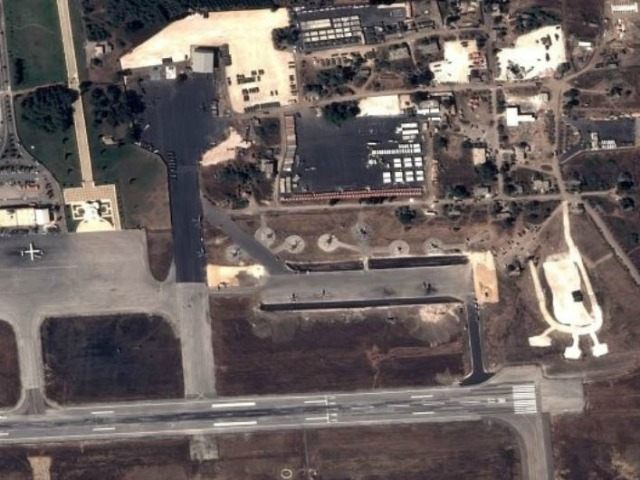A new report to the U.N. Security Council by independent monitors found North Korea earned nearly $200 million in 2017 by violating sanctions to export banned commodities, including coal shipped to ports in Russia and China, and weapons sold to customers in Syria and Myanmar.
The report, which Reuters describes as “confidential,” sounds like a hot potato the U.N. might have been reluctant to publicize immediately, as it implicates a number of countries in either actively helping North Korea evade the full pain of sanctions, or being remarkably lax about policing their ports for smuggling operations. Lax enforcement is difficult to accept as an excuse from control-freak authoritarian states like some of those named in the U.N. report.
According to Reuters, U.N. investigators found North Korea illegally shipped coal to ports in Russia, China, South Korea, Malaysia, and Vietnam. The shipments were facilitated with “false paperwork that showed countries such as Russia and China as the coal origin, instead of North Korea.” The report details 39 shipments of coal that would constitute sanctions violations if confirmed, only one of which was reported properly to the United Nations.
“The DPRK is already flouting the most recent resolutions by exploiting global oil supply chains, complicit foreign nationals, offshore company registries and the international banking system,” the monitors charged, using North Korea’s preferred name for itself.
The monitors also found North Korea cooperating on ballistic missile research with Syria and Myanmar and discovered over 40 shipments to the Syrian agency in charge of chemical weapons between 2012 and 2017.
The report charges these transfers included items useful to ballistic missile and chemical weapons. One shipment specifically mentioned by Reuters included acid-resistant tile that would be useful for constructing a chemical factory. AFP adds at least three visits by North Korea technicians to Syria in 2016, one of which involved transferring special equipment known to be employed by chemical weapons programs. U.N. monitors were told by an unnamed member state that Syria retains at least three operational chemical weapons and missile facilities.
U.S. officials on Thursday charged Syria with continuing to manufacture and deploy chemical weapons despite a 2013 agreement to completely eliminate weapons of mass destruction.
The U.N. report includes an allegation sourced to a third-party government that Myanmar has purchased ballistic missiles, rocket launchers, surface-to-air missiles, and other weapons from North Korea in defiance of an arms embargo.
An extremely delicate revelation in the report concerns illegal shipments of petroleum products, which are often accomplished through clandestine ship-to-ship transfers on the high seas. U.N. monitors say “the network behind these vessels is primarily based in Taiwan province of China.” They also accused several unnamed multinational oil companies of helping to maintain a supply of petroleum products to North Korea.
Reuters states that representatives for North Korea and Syria did not respond to requests for comment on the report, while the U.N. ambassador from Myanmar insisted his country has “no ongoing arms relationship, whatsoever, with North Korea.”
German intelligence chief Hans-Georg Maassen said on Saturday that North Korea has used its embassy in Berlin to procure equipment for its ballistic missile and nuclear weapons programs. He said some of these items were “dual-use,” meaning they could have both civilian and military applications.
CNN published a report on Saturday detailing how North Korea maintains a “secret web of front companies, military cooperation and elite-forces training deals” with Mozambique that help Pyongyang evade sanctions. Illegal contracts worth millions of dollars have been signed by the two countries. U.S. officials believe much of the money goes directly into dictator Kim Jong-un’s nuclear weapons program.
Sources in the Mozambican military told CNN that North Koreans have been training Mozambique special forces troops for at least two years, earning the Kim regime a substantial fee for their services. Other African countries are also under investigation for cooperating with North Korea.
Taiwan responded to the U.N. report on Monday by urging its people and corporations “not to carry out any financial or commercial activities that contravene relevant resolutions of the United Nations Security Council, to avoid facing sanctions.”

COMMENTS
Please let us know if you're having issues with commenting.